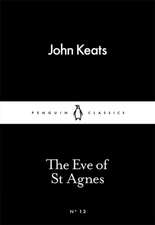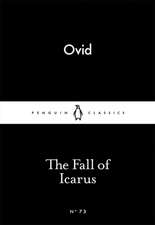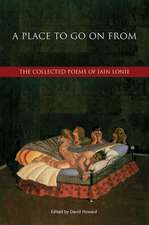When the Wanderers Come Home: African Poetry Book
Autor Patricia Jabbeh Wesleyen Limba Engleză Paperback – noi 2016
Wesley, a native Liberian, calls on deeply rooted African motifs and proverbs, utilizing the poetics of both the West and Africa to convey her grief. Autobiographical in nature, the poems highlight the hardships of a diaspora African and the devastation of a country and continent struggling to recover.
When the Wanderers Come Home is a woman’s story about being an exile, a survivor, and an outsider in her own country; it is her cry for the Africa that is being lost in wars across the continent, creating more wanderers and world citizens.
Din seria African Poetry Book
-
 Preț: 83.30 lei
Preț: 83.30 lei -
 Preț: 106.18 lei
Preț: 106.18 lei -
 Preț: 83.30 lei
Preț: 83.30 lei -
 Preț: 82.48 lei
Preț: 82.48 lei -
 Preț: 81.85 lei
Preț: 81.85 lei -
 Preț: 113.19 lei
Preț: 113.19 lei -
 Preț: 83.71 lei
Preț: 83.71 lei -
 Preț: 80.79 lei
Preț: 80.79 lei -
 Preț: 81.85 lei
Preț: 81.85 lei -
 Preț: 114.86 lei
Preț: 114.86 lei -
 Preț: 76.28 lei
Preț: 76.28 lei -
 Preț: 91.33 lei
Preț: 91.33 lei -
 Preț: 92.14 lei
Preț: 92.14 lei -
 Preț: 91.96 lei
Preț: 91.96 lei -
 Preț: 91.55 lei
Preț: 91.55 lei -
 Preț: 107.22 lei
Preț: 107.22 lei -
 Preț: 90.69 lei
Preț: 90.69 lei -
 Preț: 95.24 lei
Preț: 95.24 lei -
 Preț: 90.69 lei
Preț: 90.69 lei -
 Preț: 103.31 lei
Preț: 103.31 lei -
 Preț: 92.55 lei
Preț: 92.55 lei -
 Preț: 91.55 lei
Preț: 91.55 lei -
 Preț: 138.36 lei
Preț: 138.36 lei -
 Preț: 91.96 lei
Preț: 91.96 lei -
 Preț: 92.55 lei
Preț: 92.55 lei -
 Preț: 92.37 lei
Preț: 92.37 lei -
 Preț: 124.34 lei
Preț: 124.34 lei -
 Preț: 104.73 lei
Preț: 104.73 lei -
 Preț: 89.69 lei
Preț: 89.69 lei -
 Preț: 90.51 lei
Preț: 90.51 lei -
 Preț: 91.33 lei
Preț: 91.33 lei -
 Preț: 92.37 lei
Preț: 92.37 lei
Preț: 84.53 lei
Nou
Puncte Express: 127
Preț estimativ în valută:
16.18€ • 16.83$ • 13.35£
16.18€ • 16.83$ • 13.35£
Carte disponibilă
Livrare economică 22 martie-05 aprilie
Preluare comenzi: 021 569.72.76
Specificații
ISBN-13: 9780803288577
ISBN-10: 0803288573
Pagini: 126
Dimensiuni: 152 x 229 x 12 mm
Greutate: 0.2 kg
Editura: Nebraska
Colecția University of Nebraska Press
Seria African Poetry Book
Locul publicării:United States
ISBN-10: 0803288573
Pagini: 126
Dimensiuni: 152 x 229 x 12 mm
Greutate: 0.2 kg
Editura: Nebraska
Colecția University of Nebraska Press
Seria African Poetry Book
Locul publicării:United States
Notă biografică
Patricia Jabbeh Wesley is an associate professor of English and creative writing at Pennsylvania State University–Altoona. She has four other books of poetry, including Where the Road Turns and Becoming Ebony, part of the Crab Orchard Award Series in Poetry.
Cuprins
Acknowledgments
Book I. Coming Home
So I Stand Here
What Took Us to War
Erecting Stones: January 2013
Looters of War 2011
Coming Home: A Poem for MT
Send Me Some Black Clothes
I Need Two Bodies
The Creation
And You Tell Me This Is a Funeral?
Loss
If You Have Never Been Married
Becoming Ghost
The Killed Ones
The Cities We Lost
A City of Ghosts
July Rain
I Go Home
Song for Mariam Makeba
When Monrovia Rises
This Is the Real Leaving
Book II. Colliding Worlds
In My Dream
Sometimes, I Close My Eyes
Sandy: Love Song for the Hurricane Woman
Tsunami: A Song for an Unknown Young Man
For My Children, Growing Up in America
You Wouldn’t Let Me Adopt My Dog: A Poem for Ade-Juah
When I Grow Up
The Inequality of Dogs
Medellin from My Hotel Room Balcony
Morocco, on the Way to London
To Libya: February 2011
Sometimes I Wonder
The Deer on My Lawn
Leaves Are Leaving Us Again
Book III. World (Un)/Breakable
I Want to Be the Woman
This Morning
When I Was a Girl
I’m Afraid of Emptiness
Silence
I Want Everything
Finally, the Allergist
I Dreamed
On the Midnight Train
First Class
This Is Facebook
A Room with a View
Braiding Hair
Losing Hair
Hair
2014, My Mamma Never Knew You
Book I. Coming Home
So I Stand Here
What Took Us to War
Erecting Stones: January 2013
Looters of War 2011
Coming Home: A Poem for MT
Send Me Some Black Clothes
I Need Two Bodies
The Creation
And You Tell Me This Is a Funeral?
Loss
If You Have Never Been Married
Becoming Ghost
The Killed Ones
The Cities We Lost
A City of Ghosts
July Rain
I Go Home
Song for Mariam Makeba
When Monrovia Rises
This Is the Real Leaving
Book II. Colliding Worlds
In My Dream
Sometimes, I Close My Eyes
Sandy: Love Song for the Hurricane Woman
Tsunami: A Song for an Unknown Young Man
For My Children, Growing Up in America
You Wouldn’t Let Me Adopt My Dog: A Poem for Ade-Juah
When I Grow Up
The Inequality of Dogs
Medellin from My Hotel Room Balcony
Morocco, on the Way to London
To Libya: February 2011
Sometimes I Wonder
The Deer on My Lawn
Leaves Are Leaving Us Again
Book III. World (Un)/Breakable
I Want to Be the Woman
This Morning
When I Was a Girl
I’m Afraid of Emptiness
Silence
I Want Everything
Finally, the Allergist
I Dreamed
On the Midnight Train
First Class
This Is Facebook
A Room with a View
Braiding Hair
Losing Hair
Hair
2014, My Mamma Never Knew You
Recenzii
“Wesley is a poet working to find language that can help show the fractures and fissures of a postwar nation and the personal realities of displacement and return. . . . [Wesley] uses the framing set by the generations before her to create poetry that not only speaks to her realities as a Liberian woman and survivor of the civil war but a poetry that implicates her own grief, allowing her a fully humanized space on par with the works of anglophone writers from all over the world. In this vein Wesley, representative of a kind of ‘middle generation’ between Aidoo and the emerging writers of today, helps break ground for a myriad of both content and style.”—Matthew Shenoda, World Literature Today
“In Patricia Jabbeh Wesley’s powerful When the Wanderers Come Home, the search for a place of arrival, self-recognition, and remembrance continues. . . . Despite the brokenness of what she describes, Wesley’s poetic form is smooth and steady, the neat stanzas and non-rhyming couplets capably containing the most shocking revelations. . . . Wesley pays particular tribute to women’s strength and resilience.”—Bidisha, Poetry Review
“In Patricia Jabbeh Wesley’s powerful When the Wanderers Come Home, the search for a place of arrival, self-recognition, and remembrance continues. . . . Despite the brokenness of what she describes, Wesley’s poetic form is smooth and steady, the neat stanzas and non-rhyming couplets capably containing the most shocking revelations. . . . Wesley pays particular tribute to women’s strength and resilience.”—Bidisha, Poetry Review















